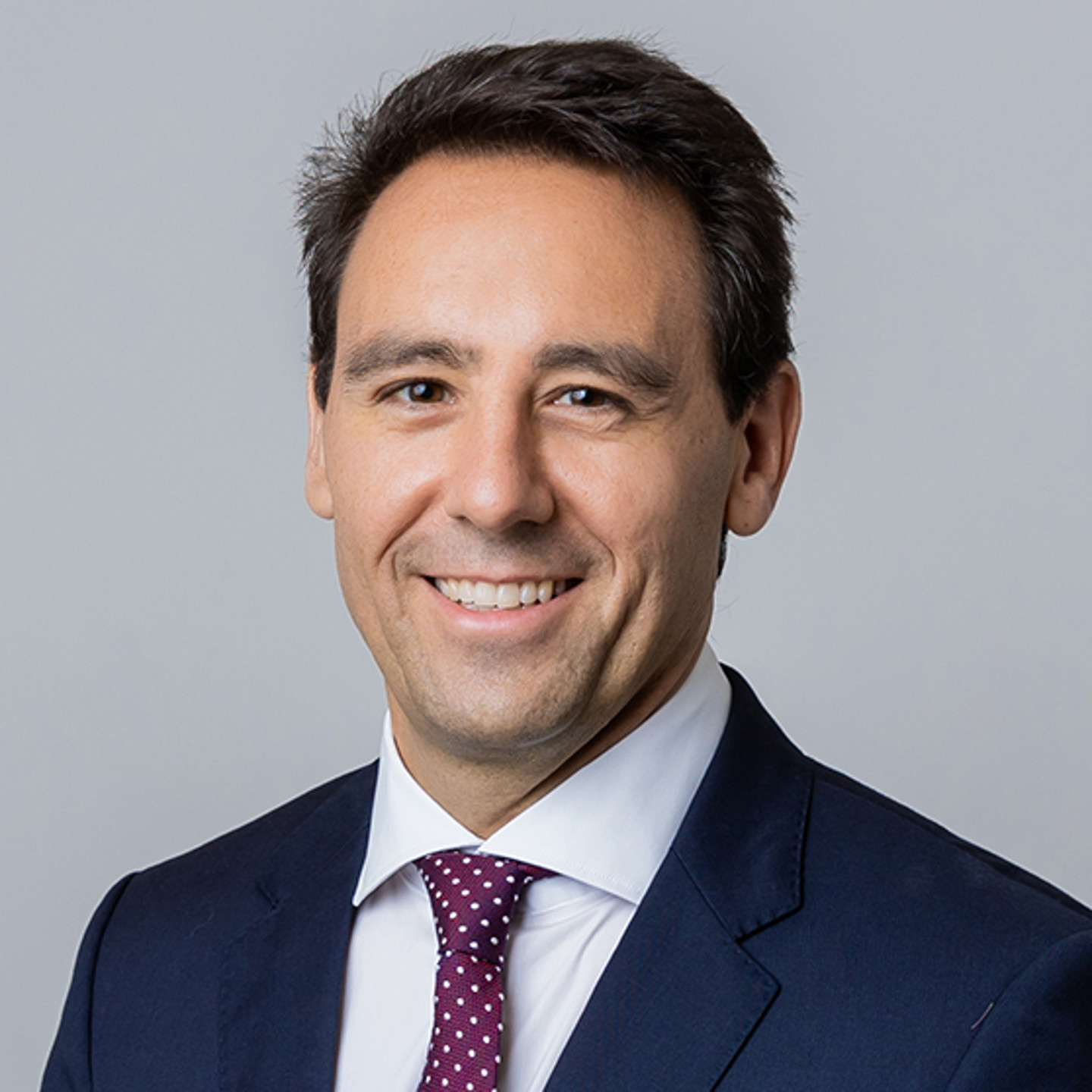
Mark Santangeli
Partner | Legal
Cayman Islands

Mark Santangeli
Partner
Cayman Islands
This article formed part of a report originally produced with Haynes and Boone LLP titled Subscription-Secured Financings: Enforcement vs Perfection (European Deals Edition). Read Ogier's other jurisdictional chapters below:
The Cayman Islands is one of the leading jurisdictions in the world for the establishment of closed ended investment funds. Funds are often formed as exempted limited partnerships (ELPs). These funds are structured on a standalone basis or as part of a larger fund structure. For example, it is common to see non-US tax investors invest in an ELP feeder fund as part of a "master-feeder" structure. Other types of Cayman vehicle (for example, exempted companies and limited liability companies) can be, and are sometimes, used as fund vehicles depending on the circumstances but an ELP is by far the most common type of entity used. As a consequence, this section focuses solely on subscription-secured financings with an ELP as the choice of fund vehicle. Specialised advice should be obtained for other types of vehicles.
Perfection
An ELP is not a legal entity; it acts through its general partner. In a typical structure, the general partner is established as a company, often as a Cayman exempted company, Cayman limited liability company, Cayman exempted limited partnership, Delaware limited liability company or Delaware limited partnership. The Exempted Limited Partnership Act (Revised) provides that the right to make capital calls and receive the proceeds of them are assets of the ELP and are held upon trust for the ELP by the general partner.
It is not necessary to have a local law security agreement to document the security over the right to receive uncalled capital commitments and the right to make capital calls. In US subscription-secured financings, the security is often governed by US law while in European subscription-secured financings it is more common for a local law governed securityagreement to be used. When it comes to taking security over the bank account into which capital contributions are paid, it is usual for the security document to be governed under the laws where the account is held. Typically, the account bank is not located in Cayman.
Priority of the security over the uncalled capital commitments is achieved by giving notice of the creation of the security interest to the ELP's limited partners (i.e. the investors). Aside from establishing priority, giving notice to the investors has additional benefits for lenders. Until investors receive notice of the security interest they are entitled to treat the fund/ its general partner as the person to whom they are liable and to obtain a good discharge by payment to, or settlement with, the fund/its general partner. Old English case law (highly persuasive but not technically binding in Cayman) suggests that once an investor receives notice of the security interest: (a) the investor is barred from thereafter accepting a release by the fund/ its general partner of its obligations or a variation of its obligations in a manner prejudicial to the secured party; and (b) the investor will not be able to set-off against its uncalled capital commitments any amounts which become due and payable to the investor (from the fund) after it has received the notice. In terms of when notice is given to investors, this is a matter of negotiation between the parties but lenders usually require that notice be served as soon as possible after closing (notice can only be sent after the security agreement is entered into and the security interest in respect of which notice is given has been created). Recently, more prominence has been given to investor notices and it is not unusual to see lenders request additional language be included in the notice that goes beyond advising investors of the mere creation of the security.
For example, language may be included advising the investor that the fund/its general partner has provided an undertaking in the finance documents not to permit any reduction or cancellation of investor capital commitments.
In those rare cases where the account bank is located in Cayman, priority of the security over the bank account into which capital commitments are deposited is achieved by giving notice of the creation of the security interest to the account bank. Whilst it is also market practice to require the account bank to provide a written acknowledgement of such notice, the approach of Cayman banks in dealing with such requests varies. In some instances the Cayman bank will not be prepared to provide any acknowledgement at all. Lastly, whilst there is no public registration regime in Cayman for security over uncalled capital commitments and the right to call capital, Cayman companies (including Cayman limited liability companies) are required under the Companies Act (Revised) to maintain a register of mortgages and charges into which details of all security interests granted must be entered. This register of mortgages and charges is an internal register only and failure to make an entry does not affect priority or validity of the security. Where a Cayman company is the general partner or ultimate general partner of a fund that has granted security, it is a commercial matter whether the general partner or ultimate general partner (as the case may be) makes an entry in its register of mortgages and charges in respect of the security interests granted by it in its capacity as general partner or ultimate general partner. There is no strict requirement to make such entries.
Enforcement
A secured party would enforce a Cayman law governed security interest using its contractual rights under the relevant security documentation and as a result, generally enforcement steps can be taken without the need for court approval. Where the security documentation is Cayman law governed, an enforcement would likely involve the secured party appointing a receiver over the collateral. The secured party would typically have the power to direct where the investors pay their capital calls, but may rely on a correlated account pledge to trap the capital call proceeds. In addition, it is common for a Cayman law governed security document to contain an irrevocable power of attorney as security for the performance of the obligations of the fund/its general partner under the finance documents. On an enforcement, this power of attorney typically permits a secured party to "step into the shoes" of the fund/its general partner and call capital from investors in the name of the fund/its general partner. Note that under the Cayman Powers of Attorney Act (Revised), a power of attorney granted by or on behalf of a fund/its general partner that is expressed to be irrevocable and which is granted to secure the performance of an obligation owed to a secured party: (a) cannot be revoked without the consent of the secured party; and (b) would survive the winding-up or insolvency of the fund, in each case for as long as the obligations to the secured party remain undischarged.
Generally on the insolvency of an ELP, secured creditors will take priority over unsecured creditors and limited partners. Enforcement against individual investors will also depend on the jurisdiction in which such investors are based.
When reviewing the limited partnership agreement (LPA) of the fund (and other fund documents) and assessing enforcement options, one consideration from a Cayman law perspective is the extent to which the fund documents confer upon lenders third party rights under the Cayman Contracts (Rights of Third Parties) Act (Revised) (Third Parties Rights Act). Under the Third Parties Rights Act, it is possible to confer third party rights on a lender which allows the lender to enforce contractual rights against the other parties to the relevant contract as if the lender had been a party to the contract. In order to cater for the needs of subscription lenders, some LPAs, especially those for funds established over the past couple of years, confer such rights upon lenders. A detailed review of the LPA is required to ascertain the nature of any such rights, but they may include the right to require investors to fund capital commitments on an acceleration of the subscription loan. There may also be other important rights, for example, a right to enforce defaulting limited partner provisions (i.e. remedies available to the fund/its general partner where a limited partner defaults in its capital call obligations under the LPA) or a veto right with respect to reduction or cancellation of investor capital commitments.
Ogier is a professional services firm with the knowledge and expertise to handle the most demanding and complex transactions and provide expert, efficient and cost-effective services to all our clients. We regularly win awards for the quality of our client service, our work and our people.
This client briefing has been prepared for clients and professional associates of Ogier. The information and expressions of opinion which it contains are not intended to be a comprehensive study or to provide legal advice and should not be treated as a substitute for specific advice concerning individual situations.
Regulatory information can be found under Legal Notice
Sign up to receive updates and newsletters from us.
Sign up